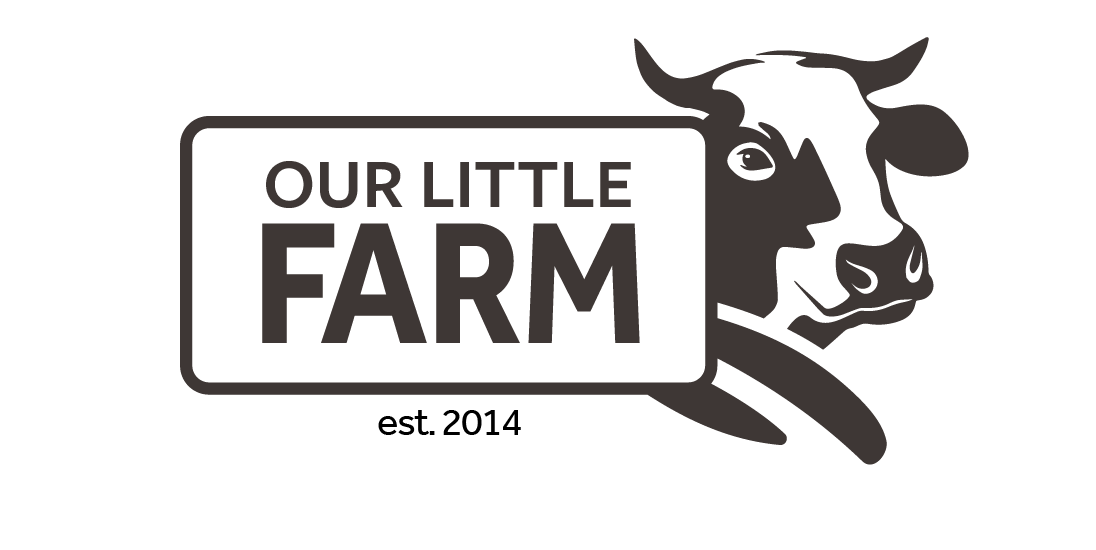Have you ever wondered to yourself whilst taking communion what exactly the spiritual significance is of, what was pre-COVID, a small stale cracker, and, now that we are in COVID, a barely-edible piece of stale cardboard?
Perhaps some of these thoughts may have come across your mind:
- Maybe it's about piety and self denial?
- Maybe the bread/cup has nothing to do with it; maybe it's just about remembrance?
On the other hand, what if we have missed the point of communion, perhaps in part?
A Case Study
Before I make my point on communion, let's take a quick look at a similar situation in the old testament: the sabbath.
As a backstory, sabbath (something I have written about extensively) was introduced to the Israelites shortly after their freedom from the Egyptians, who had abused and beaten them every day of the week. They were tired, but after generations of this kind of behavior, that had been their normative approach to life.
Then, amongst God's laws for what life and holiness looks like, he adds this one:
12 The Lord then gave these instructions to Moses: 13 “Tell the people of Israel: ‘Be careful to keep my Sabbath day, for the Sabbath is a sign of the covenant between me and you from generation to generation. It is given so you may know that I am the Lord, who makes you holy. 14 You must keep the Sabbath day, for it is a holy day for you. Anyone who desecrates it must be put to death; anyone who works on that day will be cut off from the community. 15 You have six days each week for your ordinary work, but the seventh day must be a Sabbath day of complete rest, a holy day dedicated to the Lord. Anyone who works on the Sabbath must be put to death. 16 The people of Israel must keep the Sabbath day by observing it from generation to generation. This is a covenant obligation for all time. 17 It is a permanent sign of my covenant with the people of Israel. For in six days the Lord made heaven and earth, but on the seventh day he stopped working and was refreshed.’”
Exodus 31:12-18 NLT
So after years of non-stop labor, for the sake of the His people, whom he loved, he gave them a day to remember who and whose they were, and to enjoy a time of resting. It was a law, punishable by death in fact, but the point was NOT to have some bean-counters make a bunch of extra laws for those laws, nor to have such strict enforcement as to make it unbearable, but rather the point was to take a day to rest and connect with God. In fact, duGod not only have them a day off every week, but multiple holidays, some quite extensive, to connect and enjoy life.
Fast-forward a few thousand years and "sabbath" became something that you were to get brow-beaten for not falling into strict compliance in -- a far cry from the joy-filled, restful time that God had intended.
This is highlighted most poignantly in Mark 2:23-28 when Jesus and his disciples were being once again harassed as they were walking through a grain field eating heads of wheat on sabbath. (As a total aside, how lame do you have to be to be following these people around just to criticize strict enforcement of some made-up law?) Jesus' response clarifies His intentions when those laws were given:
And he said to them, “The Sabbath was made for man, not man for the Sabbath."
So in this, man got the law right but totally missed the point -- they missed the joy, peace, and rest that was intended for the sabbath and instead turned it into something unpleasant, something the Devil is famous for doing.
Does Communion Have To Taste Terrible?
For starters, let's check out Luke's account of the "last supper" in Luke 22:14-23. For brevity, I want to highlight something very specific in this account:
4 When the time came, Jesus and the apostles sat down together at the table.15 Jesus said, “I have been very eager to eat this Passover meal with you before my suffering begins. 16 For I tell you now that I won’t eat this meal again until its meaning is fulfilled in the Kingdom of God.”
Did you notice there that it wasn't some kind of weird ceremony, it was literally a meal. In fact, we know a lot about exactly what was served at this meal because, before Israel's exit from Egypt, God told Moses a lot of details regarding what should be part of that meal.
So let's go to one of the cornerstone verses about "the elements" (which in itself sounds as clinical as it often tastes) and observe what is most often read beforehand -- in fact, many of us have memorized this:
On the night when he was betrayed, the Lord Jesus took some bread 24 and gave thanks to God for it. Then he broke it in pieces and said, “This is my body, which is given for you.[f] Do this in remembrance of me.” 25 In the same way, he took the cup of wine after supper, saying, “This cup is the new covenant between God and his people—an agreement confirmed with my blood. Do this in remembrance of me as often as you drink it.” 26 For every time you eat this bread and drink this cup, you are announcing the Lord’s death until he comes again.
1 Corinthians 11:23-26
Now, all of this is 100% legitimate, and by itself provides some sense of how we perform communion now, but let's take a quick peek at what was said beforehand.
20 When you meet together, you are not really interested in the Lord’s Supper. 21 For some of you hurry to eat your own meal without sharing with others. As a result, some go hungry while others get drunk. 22 What? Don’t you have your own homes for eating and drinking? Or do you really want to disgrace God’s church and shame the poor? What am I supposed to say? Do you want me to praise you? Well, I certainly will not praise you for this!
It would appear that the Corinthians went the opposite direction of what our churches often do; instead of sharing a sacred meal, it seems like it was more like some kind of frat party -- something that is obviously no bueño.
But let's not throw out the baby with the bath water here – Paul is assuming that, just like Jesus and his disciples, this would be part of a meal together, one filled with joy and life.
You will also notice in all accounts that it was a time of community, something that looks more like a table and less like a presentation.
Let's Talk about Logistics
The first and most likely argument against this viewpoint of communion is not theological, but practical; one might say "how can we possibly accomplish the logistics of a dinner for 1000 people on a regular basis?" In this section, I'd like to address that point.
First and foremost, if the way in which we do church is not conducive to the life, joy, and freedom that comes with the way the Bible makes mention of, then may I submit to you that perhaps instead of re-interpreting scripture to fit the way in which we do things that we instead set out to change the way we do things in order to fit the Bible. Said differently, instead of changing the Bible to fit our methods, we should change our methods to fit the Bible.
Second is a matter of faith; let's consider the feeding of the 5,000. There were all these people that were hungry (in multiple ways), and the disciples were about to punt on the opportunity because of logistical reasons. What was Jesus' response?
Jesus said, “That isn’t necessary—you feed them.”
Consider the practicalities of that statement -– put yourself in their shoes and imagine this exact occurrence at your own church: 5,000 men (not including wives and children) show up at your church to hear about Jesus during dinner time. What is your honest response?
If there is one pattern throughout the Bible it is this: we are to obey God, even when it seems crazy. Literally every story in the Bible is centric on this theme, from Adam through Abraham, Jericho, all the Kings, all the way through the New Testament – the theme remains: will you obey even when you don't know how you will make it happen? This certainly does not mean Christians shouldn't do math, nor an excuse for a lack of planning, but it should give us faith that our job it to obey -– it's God's job to make it happen.
Finally, and looking back at the points stated previously, I have seen a number of approaches to accomplish this goal practically.
One approach that has been a positive benefit of COVID is that some churches have started doing communion as a part of small groups, where the size is more manageable and a traditional meal is far more practical. Through this the group may grow closer together, and it also helps to keep that time sacred -– they are not merely eating dinner together; they are declaring the Lord's death until He comes!
Another option is through a traditional church potluck or similar style meal. Once in awhile bring all your services together, get out the tables, and invite everyone to bring a dish -- organize it however you'd like. Then, perhaps, allow everyone to gather their meal and, while everyone is eating, get their attention to stop for a moment. Instruct everyone to take a look at their plate and, for that meal, remember that, as it is broken into pieces, so our Lord was broken. For the cup, maybe it's grape juice, maybe it's an Izze -- whatever has been provided will represent the Lord's blood spilled out on the cross. Through all of this, we declare the Lord's death until He gloriously comes again!
Both of these are centric on community, and there are many other ways to do this -- do what works for you!
As a note, in case you are worried about COVID, I can assure you that the odds of getting sick and dying were FAR worse in days involving on-foot commutes without refrigeration in the dessert – perhaps that is actually why we bless our food today. Bless your food and eat it with joy!
Are Cardboard Wafers Sinful?
Nah, but I am not sure eating an Xbox 360 is sinful either, but it is kinda dumb. What I am saying however, is that perhaps we have missed the point on communion, that we have successfully extracted the commands and turned them into something that is gross (literally) rather than life-giving and joyful. Literally, we have removed the salt and our communion is flavorless (Matthew 15:13)!
The point of this post is in no way condemnation, but instead encouraging taking a different look at a long-standing tradition that I am not sure really fits the Bible in today's world. The best illustration of this is the story of the cut turkey -- the story goes:
"A young lady just turning 11 was starting to help make her family's traditional Thanksgiving dinner and noticed that her mom was cutting off and throwing away a significant portion of the turkey. Seeing as the meat was good, she asked her mom 'Why are you getting rid of that part of the bird?' Her mom stopped a moment, a bit confused, and said 'I'm not really sure.' So the young girl asked her great-grandma. Grandma laughed and said 'Oh honey! When I was a young mom we were very poor and lived in the country; our stove was very small and a full bird just wouldn't fit! So we cut off the bottom and it was just enough to feed our small family.'"
Perhaps the tradition was started due to a lack of food, when a tiny piece of bread was all that could be spared. Perhaps it was for piety, or maybe because the ovens were too small! In either case, the story behind that tradition has long fallen off and today, perhaps it's time to revisit.
Have you ever wondered to yourself whilst taking communion what exactly the spiritual significance is of, what was pre-COVID, a small stale cracker, and, now that we are in COVID, a barely-edible piece of stale cardboard?Perhaps some of these thoughts
Margin is a concept in today's society, that at best is on the fringe, and at worst has vanished entirely. We live in a 24/7, 365.25 global society that. never. stops. TV is broadcast 24/7, radio is on
Few people are unfamiliar with the infamous PBS character, Bob Ross, who was the sole host of a TV series called "The Joy of Painting." For over a decade, Bob opened a whole world of imagination through 31 seasons of





